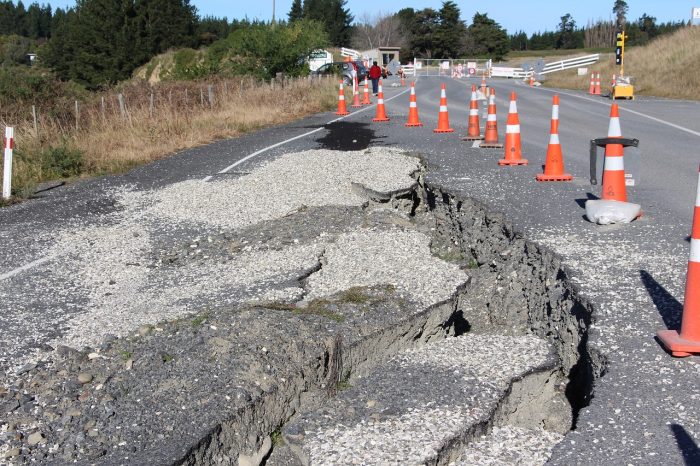A Multi-Stakeholder Approach to Developing Effective Policies to Reduce the Impact Costs of Overweight Vehicles on Roads and Bridges
The Cost of Overweight Vehicles
Overweight trucks and vehicles represent a significant cost to transportation agencies in all states. This is due to their contribution to the deterioration of road pavement and bridge decks and girders. A recent study that examined the damage cost of moving overweight trucks in New Jersey estimated an average cost of moving one ton of overweight load per mile as $0.33. About 60% of the costs are related to pavement, and 40% to bridges (Nassif, Ozbay, Wang et al, 2016). This kind of information, along with projections about traffic demand and growth, can inform transportation policies about permitting and financing of road and bridge maintenance. However, policies in this area, especially those that involve the increase of permit fees, tend to face opposition from users of transportation infrastructure and there is a need to find effective policy formation approaches that lead to optimal outcomes. Potential strategies could include actions by both government agencies and the user community.

This multi-disciplinary project will combine the results of engineering modeling in the area of transportation infrastructure deterioration related to overweight trucks in New Jersey with economic approaches to estimate the contribution of these vehicles to maintenance costs. The research team will engage multiple stakeholders to provide viable strategies that can inform policy formation regarding reducing the impact costs of overweight vehicles.
Research Objectives
The overall goals of this project are:
- To produce policy and regulatory development approaches so that transportation agencies with a mandate to maintain roads and bridges in these states are able to use best available technology and data, as well as input from multiple stakeholders, to implement policies related to: (i) the usage of transportation infrastructure by commercial users, including permit costs; (ii) the distribution of weigh stations including Weigh-In-Motion (WIM) systems, and (iii) the type of vehicles allowed for freight transportation.
3. To familiarize other transportation agencies, including New York State Department of Transportation, New York City Department of Transportation, and the Port Authority of New York and New Jersey, with the results of the cost estimate/impact methodology used in the New Jersey project/prototype as well as a multi-stakeholder approach, so they can evaluate potential applications of both the engineering modeling and multi-stakeholder approach to policy/regulation development.
Deliverables
The primary deliverables for this project are:
- Input from the user community, as well as neighboring DOTs, on the New Jersey modeling approach and the results obtained
- Feedback from the stakeholder community on estimates of the costs of overweight vehicles in New Jersey regarding road pavement and bridges
- Potential policy options to address the cost of overweight vehicles
- An in-person forum bringing multiple stakeholders from transportation agencies, the freight industry/user community and the research community to discuss the results of the research to-date, potential collaborative actions and the policy options available
- A number of web forums (minimum three) to discuss more detailed topics and solicit feedback from multiple stakeholders on key component issues and draft findings report
- A final findings and potential policy document that incorporates the engineering and policy research, the multi-stakeholder approach, and feedback from the various stakeholders that can be presented to state and local governments as a potential prototype for addressing this issue on a wider basis
| Principal Investigator | William G. Raisch, New York University |
| Funding Source | C2SMART Center: $77,041.23 INTERCEP Global Resilience program and Rutgers (cost-matching): $42,789.51 |
| Total Project Cost | $125,851 |
| USDOT Award # | 69A3551747124 |
| Start and End Dates | 03/01/2018-06/30/2019 |
| Implementation of Research Outcomes | Multiple stakeholders will be engaged via a physical meeting and web forums to discuss methodologies and results of impact estimates of the cost of overweight vehicles on regional transportation infrastructure and to obtain their feedback and input on viable strategies and policies to address these impacts and costs. |
| Impacts/Benefits of Implementation | This project will engage stakeholders from the public, private, and non-governmental sectors to discuss an important transportation issue in the NYC metropolitan area and the region, produce a policy paper describing viable strategies and policy options, and offer education on the methodologies that can be used to estimate impacts of overweight vehicles on transportation infrastructure. |








